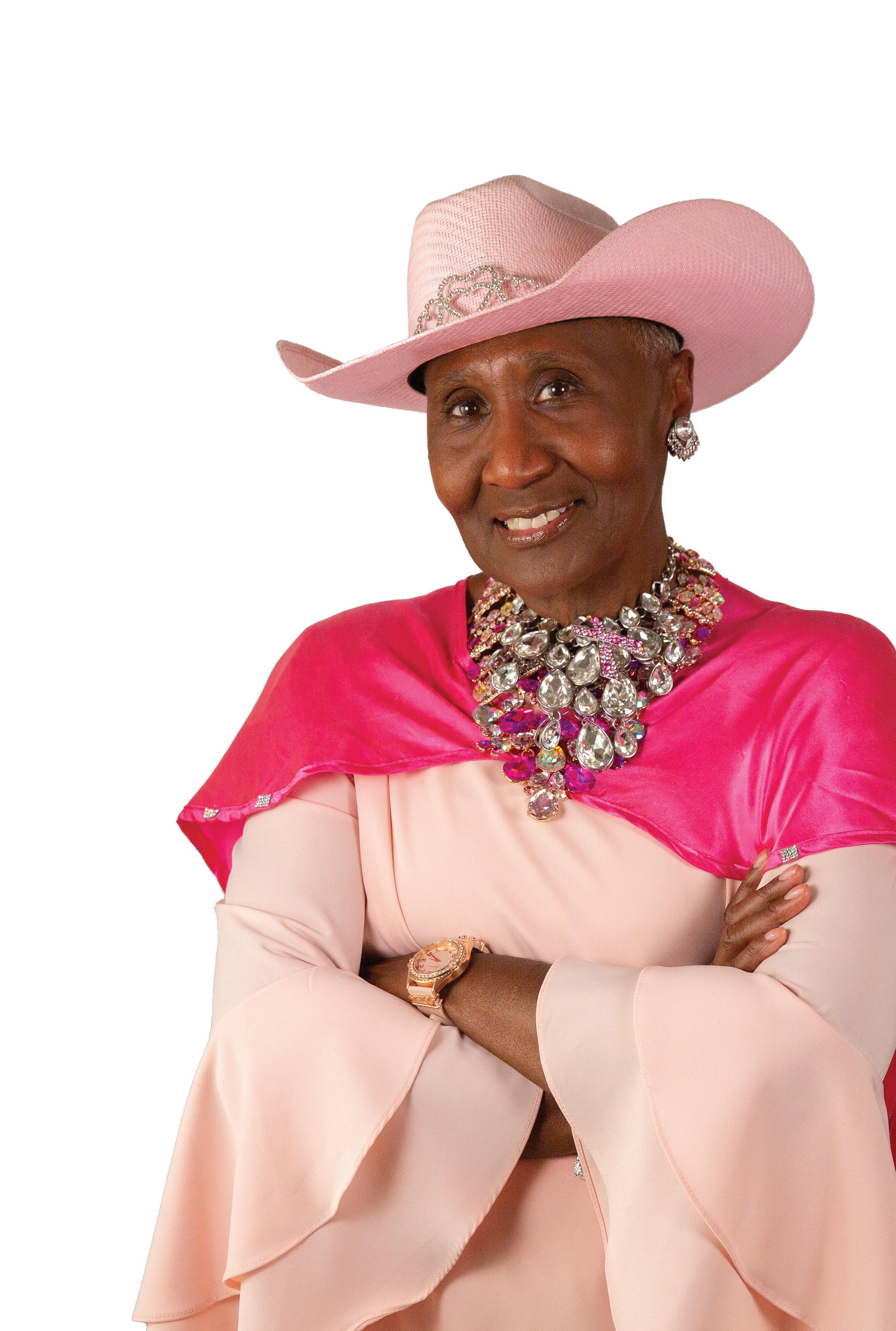
3 minute read
KEEP GOING
Li-fraumeni syndrome caused Kyzia Johnson to have multiple cancers and make adult choices before she was even eighteen
BY ROBIN ROGERS
t two-years-old, most little ones are gearing up for preschool, playing at the park, and experiencing all things inquisitively and A with a child’s mind. For Kyzia Johnson, doctors, nurses, and hospital rooms were her actuality. Kyzia was two-and-a-half-years old when childhood cancer, rhabdomyosarcoma, was discovered in the deltoid muscle of her left arm.
As it turns out, Kyzia has a rare genetic disorder called li-fraumeni syndrome that causes her to be susceptible to different cancers throughout childhood and young adulthood. Li-fraumeni syndrome is a mutation in the P53 gene which can significantly increase the chances of developing multiple cancers beginning in childhood; however, the pattern of specific cancers seen in affected family members is different. With her first cancer diagnosis in her deltoid, Kyzia was taken to Children’s Hospital in Little Rock, where her treatment was chemotherapy and radiation. Then, Kyzia was in remission for eight years. Rhabdomyosarcoma, however, is a specific type of cancer that occurs specifically throughout childhood, and it was to raise its ugly head again for Kyzia. At age ten, the cancer came back in the same spot - the upper left arm. Again, the doctors prepared Kyzia and her family for more chemotherapy and radiation. For the next 18 months, Kyzia stayed home from school and was diligent about treatments. Immunocompromised because of the chemotherapy, Kyzia couldn’t be around other people. “I couldn’t be around a lot of people my own age because I had no immunity,” Kyzia says. One day, while playing inside the house, Kyzia slipped and fell, and her arm broke. Because the cancer was spreading and the chemotherapy wasn’t working, doctors recommended amputating Kyzia’s left arm; Kyzia agreed, and her family stood behind her decision. There was a respite in treatments for the next few years, although like most cancer patients, Kyzia visited her oncologist in Little Rock twice a year for checkups. As a teenager, Kyzia had a gynecology appointment, and the doctor taught her to do a self-breast exam. Many people who are diagnosed with li-fraumeni syndrome are genetically susceptible to developing multiple cancers, most notably soft-tissue and bone sarcomas, breast cancer, and adrenocortical carcinoma,

“Don’t be discouraged. so Kyzia was always on guard. In April of 2017, Kyzia had a breast screening that revealed nothing. Don’t be sad. Even if it’s not a Three months later, Kyzia found a lump in her breast that was rock hard, and she knew it was cancer. good outcome, Seventeen-year-old Kyzia had decisions to make quickly. Her don’t ever great-grandmother had passed lose faith.” away because of breast cancer, and Kyzia’s invasive ductile carcinoma was aggressive.
By the time Kyzia went in to prepare for surgery, doctors discovered that she not only had one type of cancer in her breasts, but she had two.
She says, “With the breast cancer, I was also diagnosed with a phyllodes tumor that favored malignant two different types of breast cancer.”
Without hesitation and to make sure they got all of the cancer, Kyzia chose to do a bilateral mastectomy. High school became a thing of the past. While Kyzia finished high school at home, and was even able to walk across the stage with her class, the normalcy that most teenagers experience as a senior in high school was basically unknown to Kyzia. Hospitals, treatments, and back and forth trips to doctors’ offices was Kyzia’s reality. Kyzia warns others who have li-fraumeni to be cognizant of all the ways to prevent cancer.
Kyzia explains, “Early detection of LFS through genetic testing can be the key to limit the risks of accidentally overexposing oneself to medical treatments that enhance the chance of further development of cancer.”
Many young women would be angry at the hand that was dealt in Kyzia’s circumstance, but Kyzia, after battling multiple types of cancer, stays positive and encouraging to others.
To others fighting cancer, Kyzia says, “Don’t be discouraged. Don’t be sad. Even if it’s not a good outcome, don’t ever lose faith.”
Five years have passed, and Kyzia is in the clear of the cancers that invaded her youth. Working on her college degree at Texas A&M University-Texarkana in kinesiology, Kyzia knows more about the human body than most. Not many people could carry on like Kyzia has, but with a little faith and a lot of love and great doctors, the future’s looking good for her.













